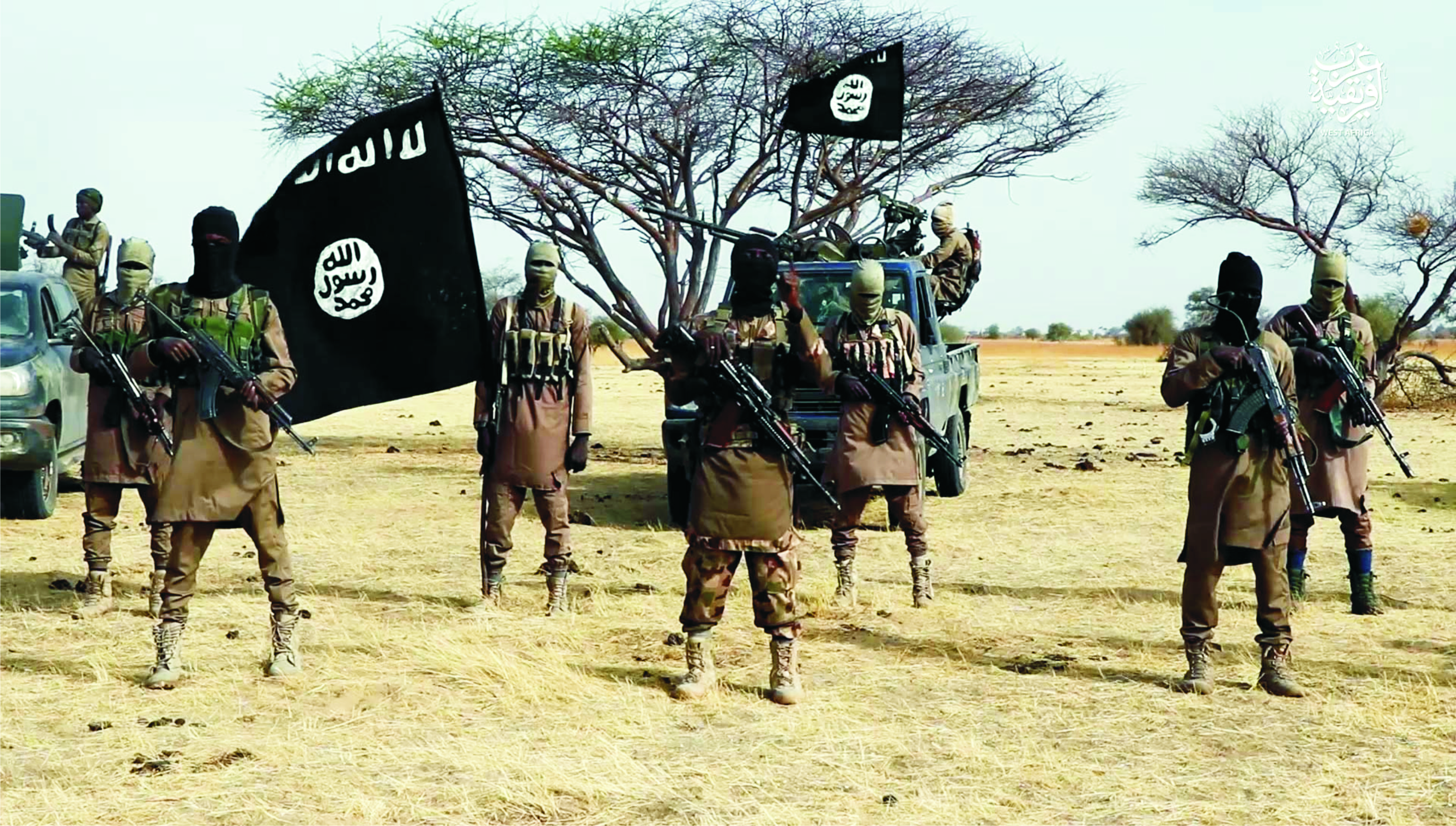Opinion
Is Boko Haram Still Technically Defeated?

The way and manner with which African leaders, and Nigerians in particular, struggle to clinch power at all cost, to the point of bulldozing any human blockade on their way to the exalted leadership seat, goes far to explain their non realization of the enormity of leadership which entails more of responsibility than privilege.
This crop of politicians are simply captivated by the paraphernalia of power, the juicy content of leadership, instead of the sacrificial spirit propelled by the will to defend and protect the need of the masses. The mere fact that leadership is embarked upon in the first instance, for the wrong reasons, charts a course for a failure-bound political adventure.
Moreso, the lack of knowledge of leadership technicalities of which Nigeria is a victim, has been the bane of many administrations in Africa as a whole. This singular error has over the years exposed citizens to dangers that ordinarily would have been nibbed in the bud. It is for this reason that Nigeria has become a country caught up in a web of heightened insecutity, yet bereft of idea of possible window out of her entanglement.
I recall that in December 2015, President Muhammadu Buhari told Nigerians that his administration had “technically won the war” against Islamist Boko Haram militants. He told the British Broadcasting Corporation (BBC), that the militant group could no longer mount “conventional attacks” against security forces or population centres.
Very importantly, the president said that key to the defeat of Boko Haram is reorganising, and reequipping of the military, which had received training from the British, the Americans and the French. Mr. President unequivocally told the BBC that the jihadists had been all but driven out from Adamawa and Yobe States, and their way of operating curtailed.
What could be more reassuring than the words of a country’s president?. But rather than settling down to gather the disjointed particles of their life, and forge ahead for another phase of life, it has been bitter tales and ugly memories of gruesome murdering of Nigerians in their own soil.
While the declaration of the president yet remains fresh in the memory of many Nigerians, insurgency has continuously appeared to be growing in strength and sophistication and becoming quite ominous for Nigeria so much that it is feared to destabilise the country to the point of possible disintegration.
The recent almost daily gory assaults on local communities across the country, is rather whooping up enormous sorrows and casting dark clouds of frightening uncertainties in the skies for the besieged populace.
Insurgency, terrorism, banditry, kidnapping, armed robbery, militancy and rituals which used to be tucked up in the English dictionary, have now found a comfortable haven in Nigeria to the point that she has become interlocked with corpses of her own innocent citizens.
For how long shall we continue to address our enemies as friends? When will we stop communicating with the deaf and dumb in verbal form instead of employing the only sign language that they understand any time any day? When criminals are not brought to account for their dreadful crimes, what do you expect? They get emboldened and continue in their evil to the detriment of peace.
Like the Christian body through its chairman, His Eminence, Dr. Samson Ayokunle, did ask President Buhari, what exactly has become of intelligence gathering of our security agencies? If this administration be sincerity of the fight against insurgency, one wonders what then is the essence of SIM card registration if the authorities cannot use it to track down these killers who rely on phones as a mean of communication to do their criminalities?
If the security agencies claim the terrorists are operating outside the country, why is it possible for these hoodlums to invade the country, kill, maim, burn and kidnap without any convincing checks on the part of the security agencies?
Certainly, when security agencies don’t live up to the expectations of the people and the government, it is overhauled with a view of injecting new visionaries into the system. The retenion of the security chiefs even where they have shown grave incapability in guaranteeing the security of the nation has left a big question mark.
I think that the leadership of this great nation has frolicked and romanced enough with these demons in human clothing, and so, a new chapter capable of opening new vistas in understanding the dynamics behind these mindless killings and destruction should be our next focus.
According to Muzan (2014), if the present trend towards growing insurgency is allowed to continue unfettered, the regional basis of the scourge will become blurred with time and unpredictable in its potential to destroy the nation.
To say that the wreck on our nation’s image by the incidences of insurgency has caused catastrophic effects is an understatement; it has in no mean measure depleted interests in entrepreneurship and investments into the nation’s economy.
We must not forget that an insurgency engulfed nation is bound to be infested with political disorder, economic disorientation, social vices, infrastructure decay, cultural and value decadence. We must act fast.
Sylvia ThankGod-Amadi
Opinion
Righteous Leadership Still Thrives

Opinion
Incentives: Key to Police Morale

Opinion
Time and Season Can Tell

-
Maritime4 days ago
Nigeria To Pilot Regional Fishing Vessels Register In Gulf Of Guinea —Oyetola
-

 Sports4 days ago
Sports4 days agoGombe-Gara Rejects Chelle $130,000 monthly salary
-
Maritime4 days ago
Customs Declares War Against Narcotics Baron At Idiroko Border
-

 Sports4 days ago
Sports4 days agoTEAM RIVERS SET TO WIN 4×400 ” MORROW” …Wins Triple jump Silver
-
Maritime4 days ago
NIMASA,NAF Boost Unmanned Aerial Surveillance For Maritime Security
-

 Sports4 days ago
Sports4 days agoNPFL Drops To 91st In Global League Rankings
-

 Sports4 days ago
Sports4 days agoNIGER DELTA GAMES PANACEA TO YOUTH DEV”
-

 Sports4 days ago
Sports4 days agoNPFL Impose Fines On Kwara United Over Fans Misconduct

